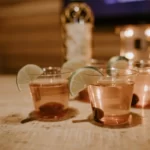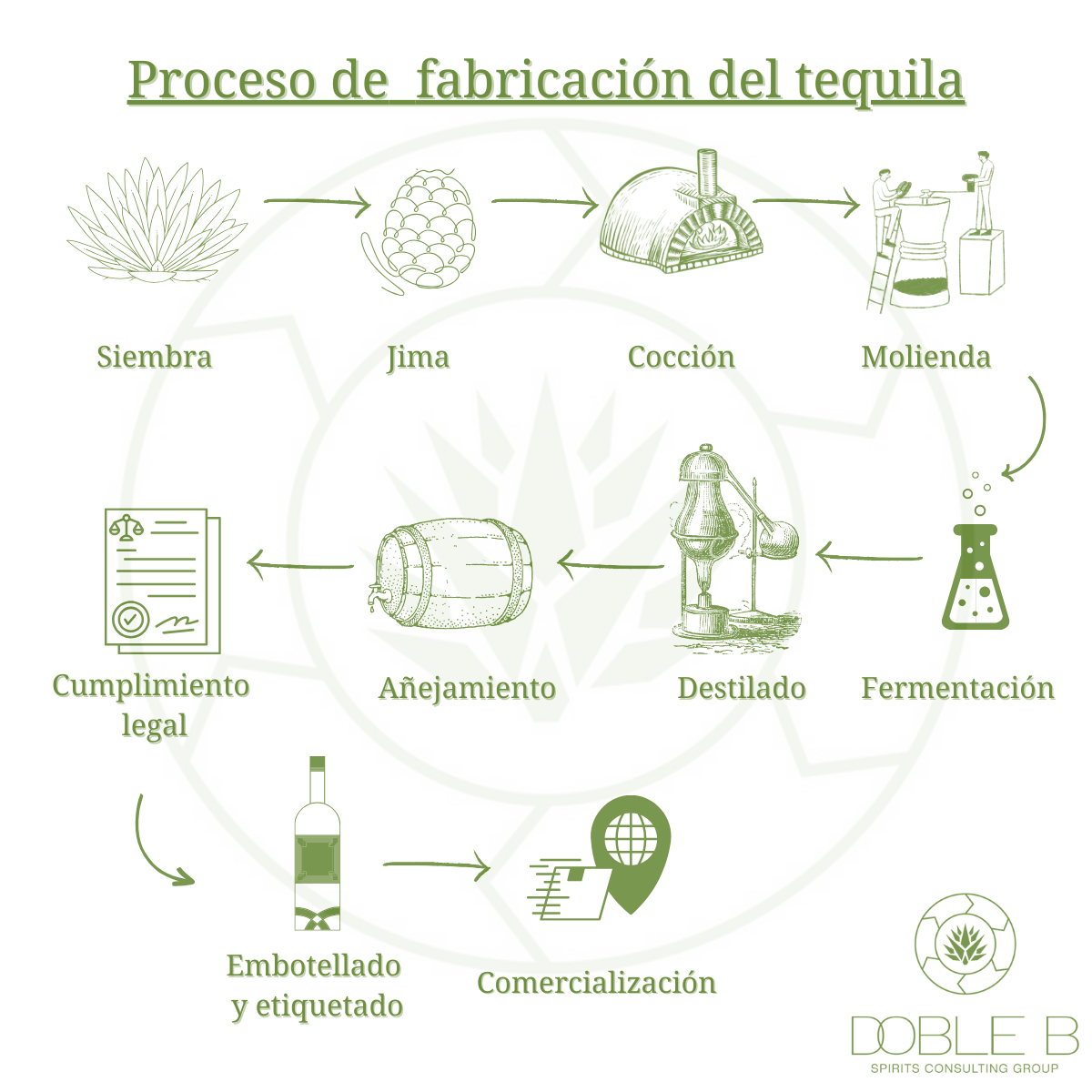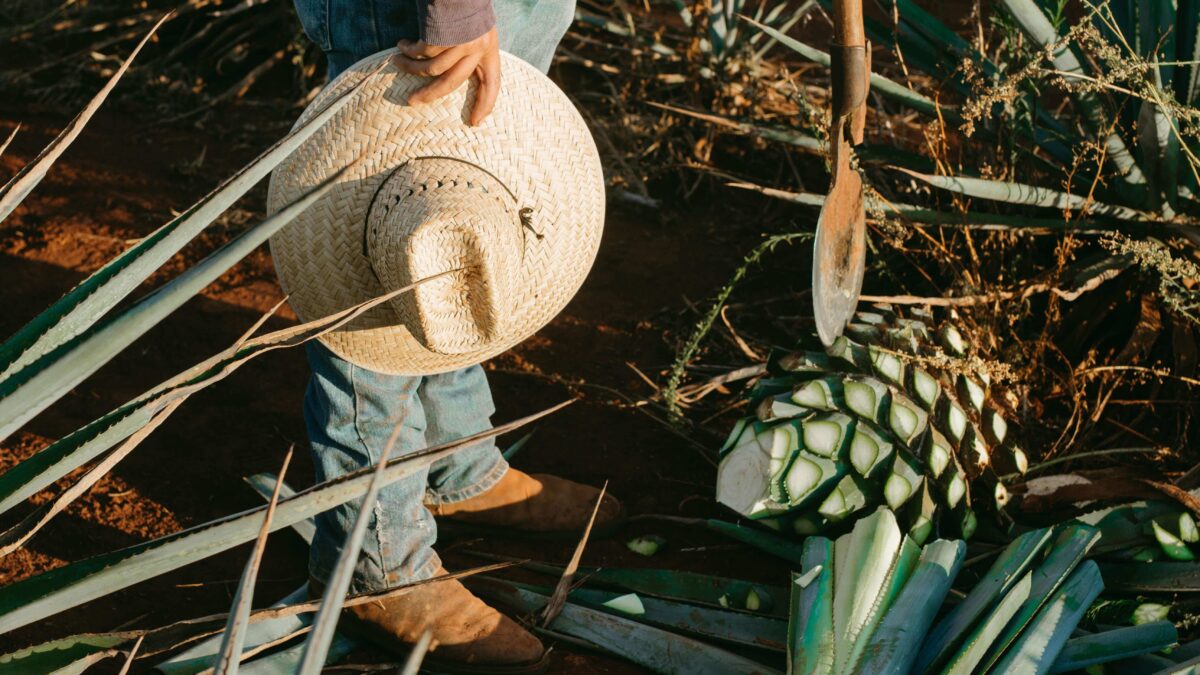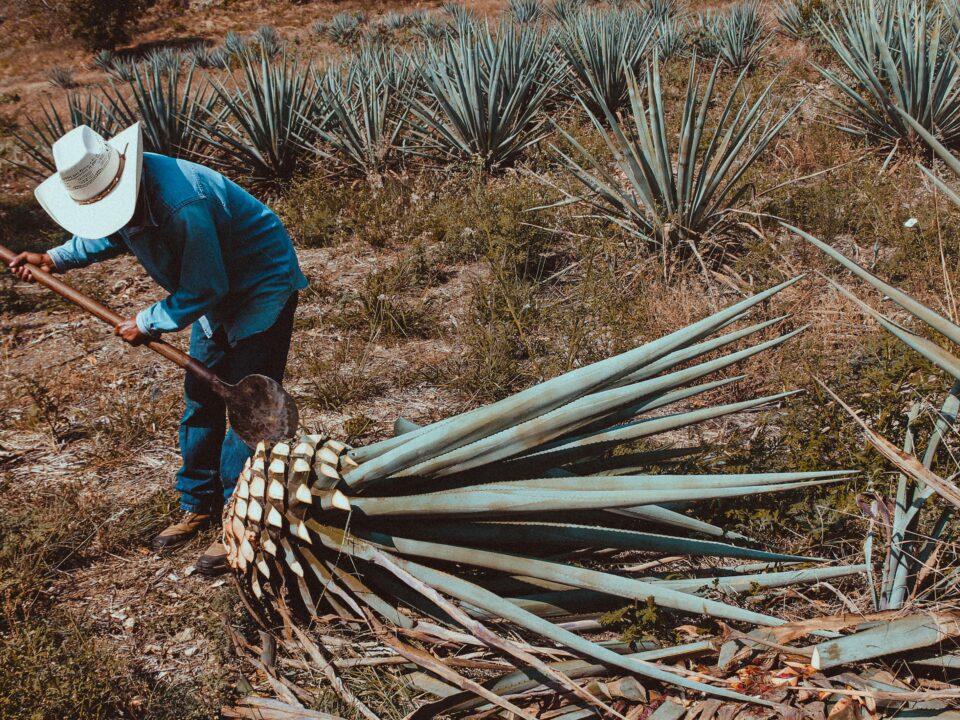Tequila Production Process

Marketing tips to position a Tequila brand.
September 7, 2023
Why do we call them “spirits”?
November 15, 2023Tequila is a distilled alcoholic beverage originating from Mexico, specifically the region of Jalisco. It is obtained through the fermentation and distillation of agave juice, primarily from the blue agave (Agave tequilana). The tequila production process involves several key steps:
Production Process:
1.Agave cultivation: Blue agave plants reaching maturity, typically after 7 to 10 years of growth, are selected. These plants are harvested, usually by removing the outer leaves to leave only the “piña” of the agave, which is the part used in tequila production.
2. Cooking: Agave piñas are cooked in earthen ovens or autoclaves, depending on the brand and type of tequila being produced. Cooking aims to soften the piñas and convert starches into fermentable sugars. This process can last several hours.
3. Grinding: Cooked piñas are crushed to extract agave juice. Traditionally, stone tahonas were used for this task, although many modern distilleries use mechanical mills.
4. Fermentation: Agave juice is placed in fermentation tanks, where yeast is added. Fermentation can last several days, converting agave sugars into alcohol, generating a liquid called “must” with a low alcohol content.
5. Distillation: The must is usually distilled twice in copper stills. In the first distillation process, “ordinary” or “white” is obtained, which is young and strong tequila. In the second distillation, “tequila reposado” is obtained, which is smoother and is subsequently aged.
6. Aging: Some tequilas are aged in oak barrels for a specific period to acquire flavor and color. Depending on the duration of aging, white tequila (unaged), reposado (rested for several months), and aged tequila (aged for at least one year) tequilas are obtained.
7. Bottling and labeling: After aging (if applicable), different batches may be blended to achieve the desired flavor profile. The tequila is then filtered and bottled in glass bottles. Some tequilas, such as 100% agave tequila, are not mixed with other alcohols.
8. Marketing: Tequilas are distributed nationally and internationally.
It is important to note that tequila must comply with specific regulations and is protected by the Denomination of Origin Tequila (DOT), which regulates its production and authenticity. The quality and flavor of tequila can vary depending on the brand and production process used.





